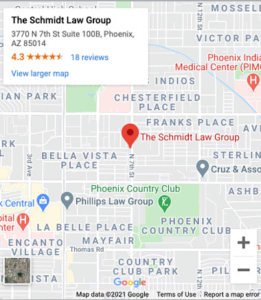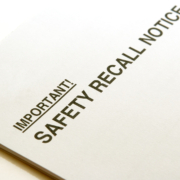Personal injury cases usually rely on proving the negligence of another party. Perhaps a manufacturer allowed a faulty design to leave the plant and be sold to the public. Maybe your neighbor didn’t keep their dogs properly restrained and one bit you. You may have been in a crosswalk and struck by a car. Any number of negligent acts can lead to you being injured or your property damaged. Fortunately, you have legal recourse to pursue monetary damages for your medical expenses and suffering.
Some states make it easier than others for plaintiffs to win their personal injury cases. In Arizona, the law allows for comparative negligence, a standard that is friendlier to the plaintiff than to the defendant. If you’ve been harmed by another’s negligence in Arizona, you have a better chance of being awarded compensation than you would in some other states.
Proving Negligence
Pursuing these cases requires hard work on the part of your lawyer. To win any negligence case, your personal injury attorney needs to prove four basic elements. They are:
- Duty – You must prove that the defendant had a duty to you, such as a doctor owing you the best medical care they can provide.
- Breach – You need to show that the defendant breached, or failed to uphold – their duty to you, such as meeting the health industry’s standard of care.
- Cause – You must establish that the defendant’s negligence was the actual cause of your injury. For instance, you would need to show that a faulty gas pedal caused you to crash and be injured.
- Damages – You need to demonstrate that the court can compensate you for the situation, such as providing money for medical care or property damage.
Your attorney must meet these four basics in order to have a chance of being successful in court. A reputable personal injury lawyer will determine that these elements exist before agreeing to take your case.
Comparative Negligence
The court will determine your level of responsibility, anywhere from 1% to 99%, and then deduct that percentage from the awarded damages. So even if you are determined to be 90% at fault, you can still collect 10% of the awarded damages. For instance, car accidents are often the fault of both drivers to some degree. If you are speeding but the other driver drifts into your lane, you might be assigned 20% of the blame while the other driver is considered 80% responsible. In that case, you will still be able to receive damages after your percentage is deducted from the total.
Arizona does block your ability to recover damages if you intentionally contributed to the injury or accident. Unfortunately, some people do seek out ways to collect damages, even if they have to deliberately put themselves in harm’s way. You cannot purposely walk in front of a car and expect to benefit from that act, even if the driver was texting or drinking.
Contributory Negligence
Some states’ use the concept of contributory negligencein these personal injury cases. This means that if you are harmed due to your own negligence, you will not be able to win damages. Under contributory negligence, it doesn’t matter how small your contribution to the situation was. A drunk driver could crash into your car and seriously injure you. Under pure contributory negligence, driving just ten mph over the speed limit would mean you contributed to the accident. As a result, you would not be able to win in court, no matter how serious your injuries.
Only a few statesstill have “pure” contributory negligence laws now. They are:
- Alabama
- Maryland
- North Carolina
- Virginia
- Washington D.C.
Many other states have adopted modified comparative negligence in order to “split the difference” between comparative negligence and contributory negligence.
Modified Comparative Negligence
Other states have adopted a modifiedapproach to comparative negligence, which means that the plaintiff must be found to be at least 50% responsible for the injury or damage in order for you to win damages. Of course, if the plaintiff is found to be 60% responsible and you 40% responsible, your award will likely be relatively small. The states following this lawinclude Arkansas, Colorado, Georgia, Idaho, Kansas, Maine, Nebraska, North Dakota, South Carolina, Tennessee, Utah and West Virginia.
Your Lawsuit
These negligence standards mean that Arizona residents are in a better position than those in many other states to collect damages in personal injury suits. You are able to get compensation even if you contributed substantially to the accident or issue at hand. Arizona holds manufacturers, doctors and other service and good providers to a high standard. They must make your welfare a priority, which means the state earns high marks for protecting its citizens in these cases.
Schmidt Law Group
Arizona residents can get the legal help they need from The Schmidt Law Group. The respected attorneys at The Schmidt Law Group have years of experience with negligence cases and are well-versed on the specifics of Arizona law. They know how to get you the highest monetary award possible under the comparative negligence standard, even if you are partly to blame for the situation.
Schmidt Law Group offers every potential client a free case evaluation. Plus, when you retain their services, you do not pay a fee upfront. In fact, you only pay for their expertise when they win a settlement for you. This arrangement demonstrates that their attorneys believe in you and your case. You always receive the best possible representation despite your financial situation. For more information, contact Schmidt Law Group today by filling out an evaluation form or calling (602) 282-0047.










